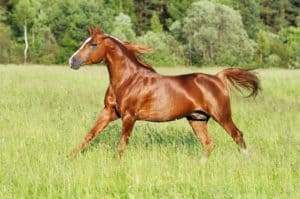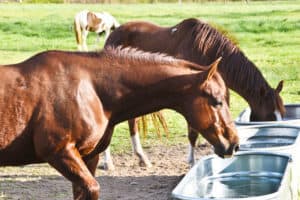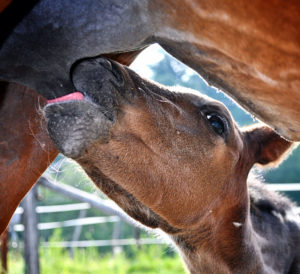
Your Guide to an Outrageously Shiny Equine Coat
Experts share feeding, grooming, and bathing tips to keep your horse’s hair coat gleaming.

Experts share feeding, grooming, and bathing tips to keep your horse’s hair coat gleaming.

Water is an essential nutrient for horses. Find out why it’s important to keep your horses’ water sources clean and explore common challenges horse owners face.

What’s in your horse’s hoof-care box? Here are the items that hoof care professionals recommend you keep on hand.

Telemedicine is growing in popularity among veterinarians and clients, but it doesn’t come without risks.

Is your horse a picky eater? Learn about reasons your horse might turn his nose up at his meals and what you can do about it.

A nearly lost shoe should stop a rider cold because it can expose horses to foot injuries ranging from nail punctures to sole bruising. Having the right tools and knowing how to use them can help you remove a shoe safely when a farrier isn’t available.

Every year horse owners across the United States and Canada whose mares have lost foals or whose foals have been orphaned turn to Facebook to connect with one another.

One horse owner’s experience with her adult horse that was born prematurely.

Oocyte growth factor (OGF) lasts three years or longer and is a potential alternative to PZP.

State stay-at-home orders and social distancing related to COVID-19 have closed BLM long-term mustang holding facilities to the public.

The 46-to-4 vote forbids the operation of carriages for hire within the city.

New legislation in Chicago will prohibit the city from issuing licenses to operators of horse-drawn carriage businesses there.

Travel restrictions and redirected resources mean fewer people are reporting animal welfare issues, but advocates say cases are still out there.

From shutting down local horse shows to postponing the Olympic Games until 2021, the coronavirus pandemic has played havoc with the way owners keep, exhibit, and even trail ride their horses.

Our reporter is adapting to life with limited access to her horse as her barn sets guidelines to prevent COVID-19 spread.

Under current law, veterinarians in Kentucky are forbidden to report animal cruelty without the express permission of the animal’s owner or unless a court orders the disclosure.
Stay on top of the most recent Horse Health news with
© 2022 Copyright Statement dolor sit amet, consetetur sadipscing User Terms, sed diam nonumy eirmod tempor invidunt ut labore et dolore magna aliquyam erat, sed diam voluptua. At vero eos et accusam et justo duo dolores et ea rebum. Stet clita kasd gubergren, no sea takimata sanctus est Lorem ipsum dolor sit amet.